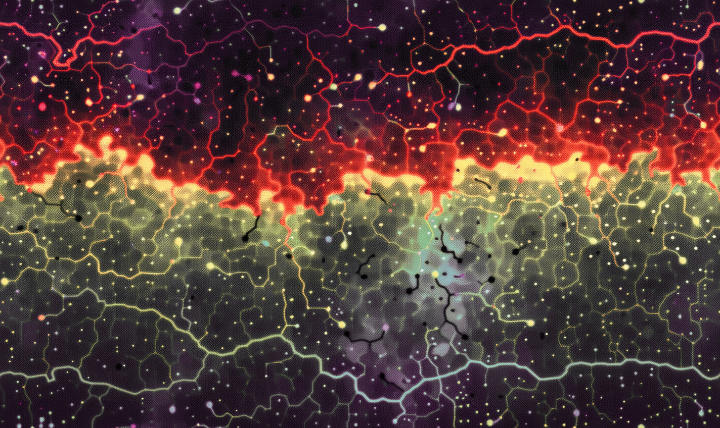That a reducing but ambitious, articulate but plausible theory of consciousness helps the student of meditation: that it is designed especially to guide those who experience profound states of neural excitation - that my theory makes no sense outside those experiences, that it assumes a familiarity with extremes of systemic coherence, many of which come dangerously close to the pseudoepiletic. That this is something everyone is to some extent familiar with, but no one will talk about: just like talking to yourself, the peripheral ticks and twitches and microhypnoses we learn to cover over with mannerism and mood, are the neglected clues to an entirely new vista. That you are a fragile placidity over a shimmering turbulent flow, that every moment is decomposable into a thousand petulant incipient urges, that the mere act of breathing involves the successive activation of a chain of subsystems and a ripple palpable in the spinal musculature, that when you're doing nothing you are doing a thousand things homogeneously, that sitting meditation can become one of the most intense experiences possible because it seeks to contain neural excitation until it goes critical: that's the payoff of all this work with "nonlinear dynamic systems" and the like. By whatever means necessary, we find a way out of the brutality of the Cartesian medical-mechanic: the reigning metaphors concerning the bodymind are infused with some of the most entrenched stupidity the Western tradition has to offer, rooted not in the best of Greek thinking as our mathematics and logic is, but in the willfully stupid metaphors of the postaxial priest, especially those of Roman Christianity with its godfather in Augustine, trained at an early age to think slavishly by the Manicheans. Even the Zoroastrian heresy was a betrayal of the ancient fire cult of the Indo-Iranians, clearly the work of a popularizer and an all-too-conscious prophet, one who intuited the needs of the people for a world of black and white, for a more personalized dramaturgy which might explain their anxiety, the first religion addressed to the tribeless individual. That therefore a theory of consciousness is directly implied by the moral revolution of late antiquity and modernity, that I continue to encounter the problem because my psychohistory depends on a working understanding of the nomadic-agricultural tension coming to the surface in peak modernity - which is that point at which nomadic valuations begin to make sense again, in which we all begin to feel like lone wanderers of a wilderness ousted from a fictional tribe, as though we were the crazy ones pushed to the frontier and only occasionally consulted in matters of extreme duress, such as would have only visited a tribe once every few generations...
To be fully modern is to be this tribeless halfmad loner, the one who hallucinates like his ancestors but speaks the language of his peers. As the tribe fragments under stress, it throws out its more exceptional first, in order to sample the neighboring space of innovation: a human community is also a psychosomatic calculator, creeping along strange curves. Modern individuality and its hypertrophic self-consciousness was once an innovation, something marveled at from a distance and kept away from children. Therefore a "decomposed" unity of experience is not something desirable in itself, but necessary as palliative, as remedial education in the basics of subjective elasticity: healthy creatures trip out a lot, without much concern. Nearly every time my dogs nap, they undergo extreme PGO waves during REM, often drifting up to awareness out of what must often be intense dreams - I can see them remark to themselves about the situation, sigh, and go back. The healthy creature is not concerned with transitions of context, nor scale, nor the precise terms of sanity: its joy and lust will take care of pathfinding, and sanity will percolate out from the balance of its ancestral desires. Healthy creatures just find themselves acting for their own benefit, who cares "why".



